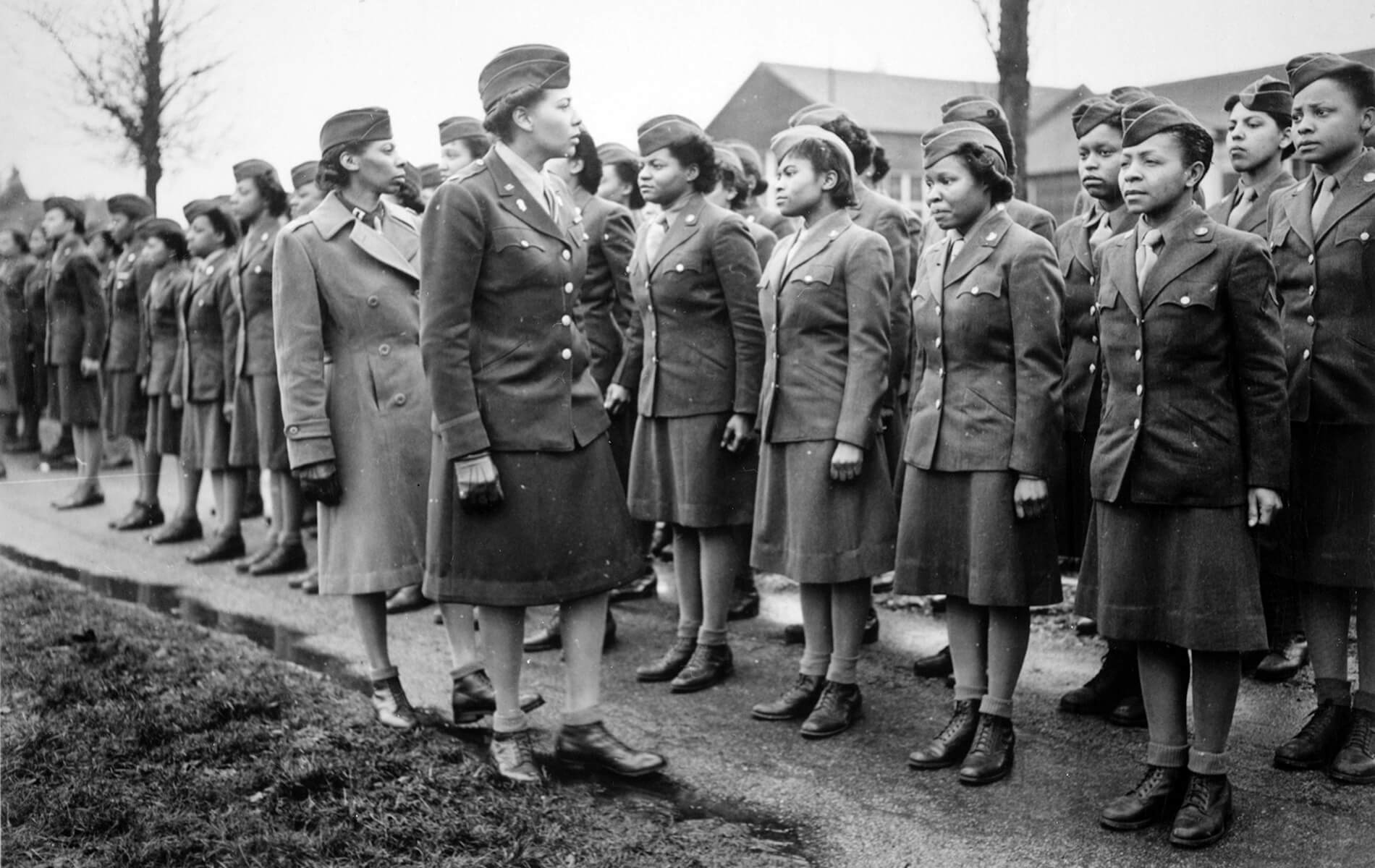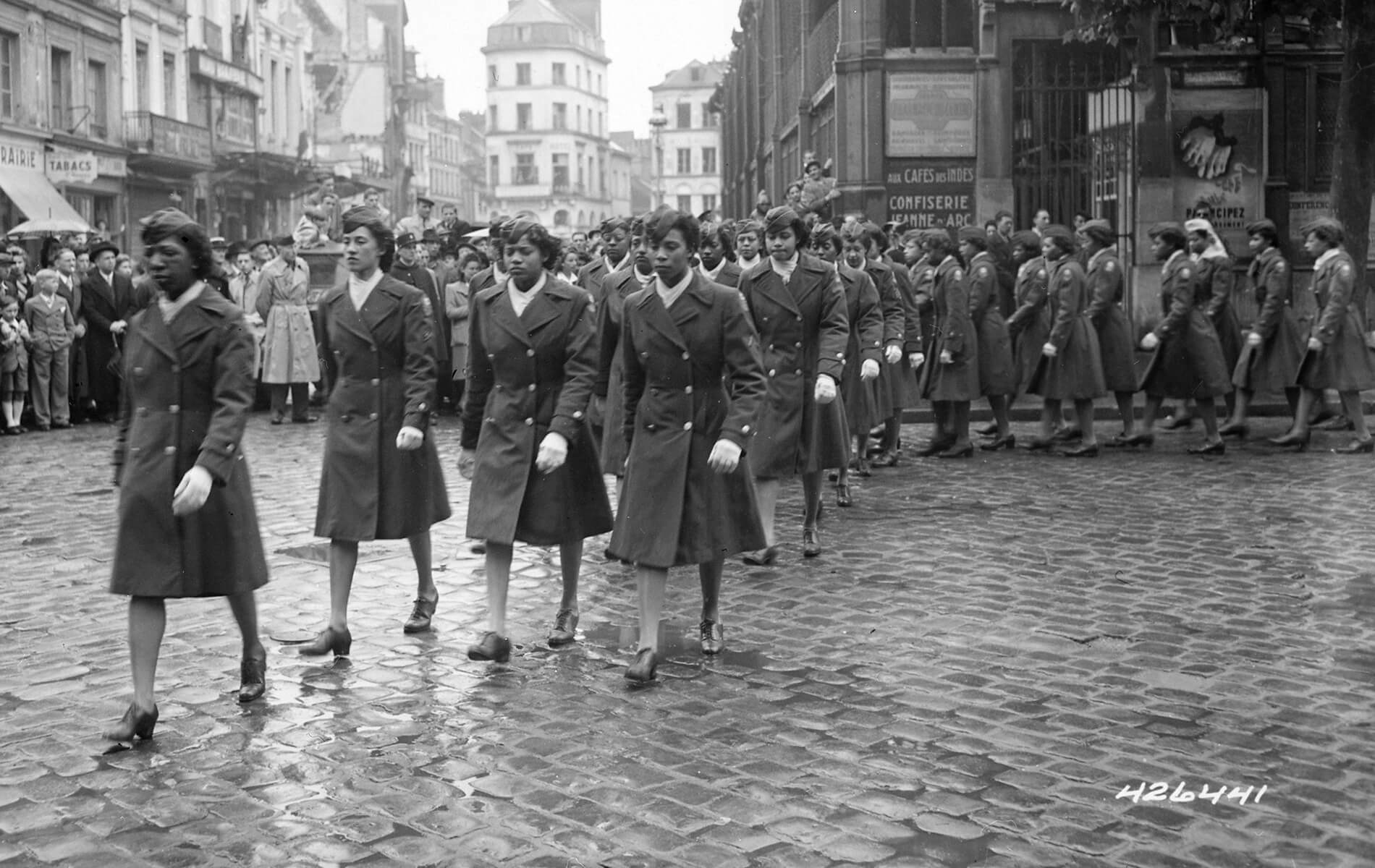In the early 1940s, when American men she knew were volunteering to beat back the Axis powers, a thought crossed Elsie Garris’ mind.
“If they can all go, why can’t the women go?”
Her brother and brother-in-law had joined the U.S. Army.
“I happen to just be thinking one day, ‘Why is it that they can go in? I should go in, too,’ ” Ms. Garris recalled. Along with a friend, Ms. Garris joined the Women’s Army Corps.
Around that time, Catherine Caroline Johnson, a stenographer, and daughter of a World War I veteran joined the military for adventure and a fresh start after calling off her engagement. She, too, joined the WAC.
Although they didn’t realize it at the time, Ms. Garris, Ms. Johnson, and 855 other African-American women would make history. They would become part of the 6888th Central Postal Directory Battalion, the only African-American Women’s Army Corps unit to serve overseas during World War II. Led by Maj. Charity Adams, their task was to clear an overwhelming backlog of letters and parcels meant for US troops but that sat in warehouses in England and France, hurting morale. The battalion completed their task in half the time expected. Formed in November 1944, they set sail for Europe on Feb. 3, 1945.
Patricia Taylor, daughter of the former Catherine Caroline Johnson, recalls her mother’s stories of her assignment in Europe. Her mother learned to speak a little French and bought children’s books written in French. And she and her ex-fiance, John Henry Tate, would carry through on their marriage plans after he joined the Army and tracked her down.
“She always told me she was in the first group of black WACs who went overseas,” said Mrs. Taylor, the Tates’ only daughter. “ … My mom was in awe to see the world.”
The 6888th was a self-contained unit. The Army wasn’t yet integrated for men, let alone women. Segregated by both race and gender, the members of the Six Triple Eight not only made history, they quickly achieved what seemed insurmountable, and in doing so, improved the morale of U.S. troops.
When the 6888th arrived in Birmingham, England, in February 1945, they found floor-to-ceiling stacks of undelivered letters and parcels stored in cold warehouses with poor lighting. Some of the packages had only partial addresses, and some were intended for different individuals who had the same name. The unit created and maintained a system of roughly seven million cards to track service members and used serial numbers to distinguish the soldiers who had the same name. When a piece of mail was only partially addressed, they researched to try to find the soldier it was meant for. The WACs worked round the clock, organized in three 8-hour shifts. Before the 6888th arrived in theater, one general officer estimated it would take six months to clear the backlog in Birmingham; the Six Triple Eight accomplished it in three months.
After their success in England, the 6888th Central Postal Battalion moved to Rouen, France, and then to Paris, where they continued their work until the last members of the unit returned to the U.S. in February 1946.
In March 2016, the U.S. Army Women’s Foundation honored the battalion by inducting it into the foundation’s Hall of Fame. The honor is bestowed based on the extraordinary contributions the battalion made to the Army and to women in the Army.
The story of the 6888th Central Postal Directory Battalion, and the stories of the women who served in the battalion, are preserved in the book, To Serve My Country, To Serve My Race, by Brenda L. Moore. The Army’s history files also share the achievements of the Six Triple Eight: http://www.history.army.mil/html/topics/afam/6888thPBn/index.html.




